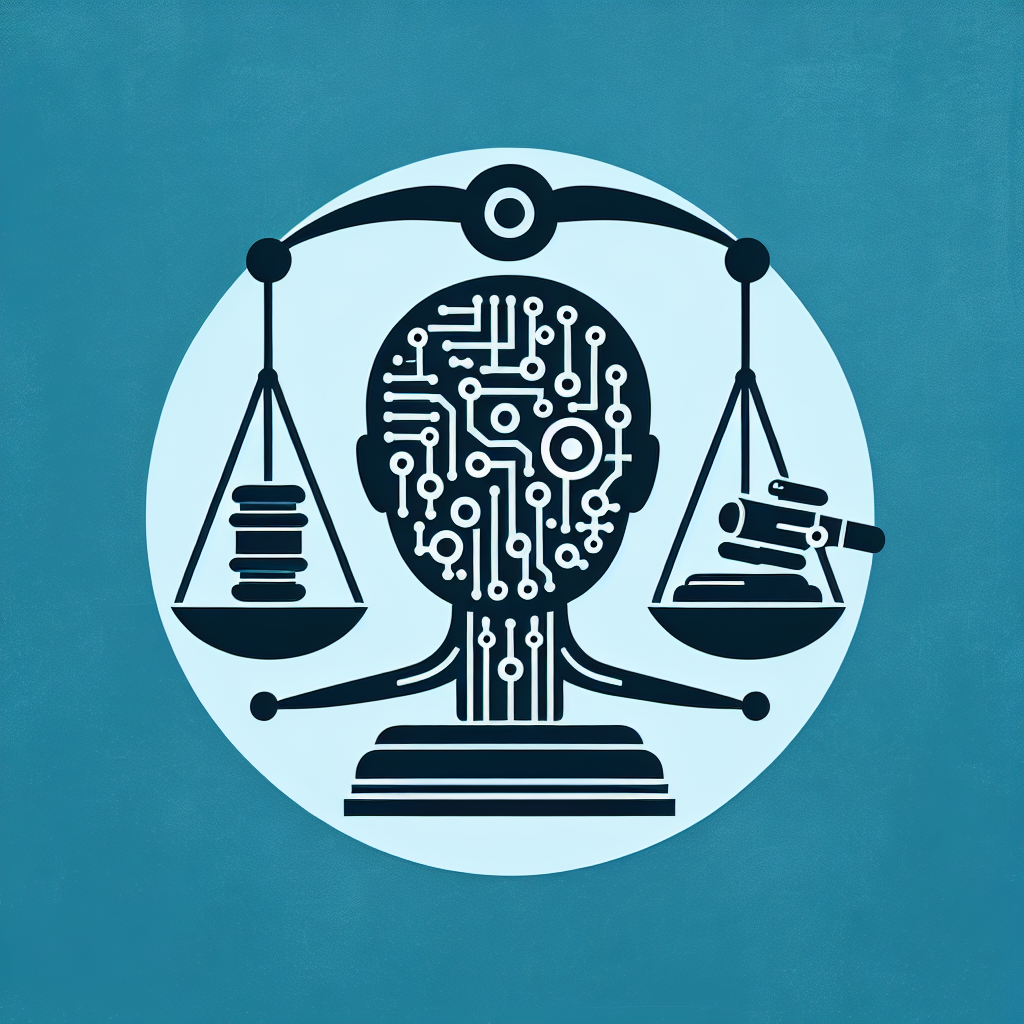AI Outsourcing: A Guide for Legal Professionals
In today’s fast-paced digital world, the use of artificial intelligence (AI) is becoming increasingly prevalent across various industries, including the legal sector. AI technologies have the potential to revolutionize the way legal professionals work, providing them with powerful tools to streamline processes, improve efficiency, and deliver better outcomes for clients. However, implementing AI in a law firm can be a complex and time-consuming process, requiring specialized expertise and resources that many firms may not have in-house. This is where AI outsourcing comes in.
AI outsourcing involves partnering with external vendors who specialize in AI technologies to provide services and solutions that can help legal professionals leverage the power of AI in their practices. By outsourcing AI services, legal professionals can access cutting-edge technologies and expertise without the need to invest heavily in developing and maintaining AI capabilities in-house. In this article, we will explore the benefits of AI outsourcing for legal professionals, key considerations when outsourcing AI services, and common FAQs about AI outsourcing in the legal sector.
Benefits of AI Outsourcing for Legal Professionals
There are several key benefits that AI outsourcing can offer legal professionals:
1. Access to specialized expertise: AI outsourcing allows legal professionals to tap into the expertise of vendors who specialize in AI technologies. These vendors have deep knowledge and experience in developing and implementing AI solutions specifically tailored to the needs of the legal industry.
2. Cost-effectiveness: Developing and maintaining AI capabilities in-house can be costly and time-consuming. By outsourcing AI services, legal professionals can access cutting-edge technologies and expertise at a fraction of the cost of developing these capabilities internally.
3. Increased efficiency: AI technologies can help streamline repetitive and time-consuming tasks, such as document review, legal research, and contract analysis. By outsourcing these tasks to AI-powered solutions, legal professionals can free up time to focus on higher-value activities, such as client counseling and case strategy.
4. Improved accuracy: AI technologies can analyze vast amounts of data quickly and accurately, helping legal professionals identify patterns, trends, and insights that may be difficult to uncover through manual review. By outsourcing AI services, legal professionals can enhance the accuracy of their work and make more informed decisions.
5. Scalability: Outsourcing AI services allows legal professionals to scale their AI capabilities up or down as needed, depending on the volume of work or complexity of tasks. This flexibility can help law firms adapt to changing business needs and market conditions.
Key Considerations When Outsourcing AI Services
When considering outsourcing AI services for your legal practice, there are several key factors to keep in mind:
1. Data security and confidentiality: Legal professionals deal with sensitive and confidential client information on a daily basis. When outsourcing AI services, it is crucial to ensure that the vendor has robust data security measures in place to protect this information from unauthorized access or disclosure.
2. Compliance with regulations: The legal industry is subject to strict regulations and compliance requirements, such as GDPR and HIPAA. When outsourcing AI services, legal professionals must ensure that the vendor complies with these regulations and has mechanisms in place to safeguard data privacy and security.
3. Customization and integration: AI solutions should be tailored to the specific needs and workflows of your legal practice. When outsourcing AI services, it is important to work closely with the vendor to customize and integrate the solution seamlessly into your existing systems and processes.
4. Training and support: Implementing AI technologies requires training for legal professionals to ensure they can effectively use the tools and maximize their benefits. When outsourcing AI services, legal professionals should inquire about the vendor’s training and support offerings to ensure a smooth transition and adoption of the technology.
5. Performance metrics and monitoring: To evaluate the effectiveness of outsourced AI services, legal professionals should establish key performance metrics and monitoring mechanisms to track the impact of AI technologies on their practice. Regular performance reviews and feedback sessions with the vendor can help identify areas for improvement and optimization.
FAQs About AI Outsourcing in the Legal Sector
Q: What types of AI technologies can be outsourced in the legal sector?
A: AI technologies that can be outsourced in the legal sector include document automation, contract analysis, legal research, e-discovery, predictive analytics, and case management solutions.
Q: How can AI outsourcing help improve efficiency in a law firm?
A: AI outsourcing can help improve efficiency in a law firm by automating repetitive tasks, such as document review and legal research, enabling legal professionals to focus on higher-value activities and deliver better outcomes for clients.
Q: What are the potential risks of outsourcing AI services in the legal sector?
A: Potential risks of outsourcing AI services in the legal sector include data security breaches, compliance violations, lack of customization, inadequate training, and subpar performance of AI technologies.
Q: How can legal professionals ensure the confidentiality of client information when outsourcing AI services?
A: Legal professionals can ensure the confidentiality of client information when outsourcing AI services by conducting due diligence on the vendor’s data security measures, implementing robust confidentiality agreements, and monitoring access to sensitive data.
Q: What are the key considerations when selecting an AI vendor for outsourcing services?
A: Key considerations when selecting an AI vendor for outsourcing services include expertise in the legal industry, track record of successful implementations, data security measures, compliance with regulations, customization capabilities, training and support offerings, and performance metrics.
In conclusion, AI outsourcing can offer significant benefits to legal professionals, including access to specialized expertise, cost-effectiveness, increased efficiency, improved accuracy, and scalability. When considering outsourcing AI services, legal professionals should carefully evaluate key factors such as data security, compliance, customization, training, and performance monitoring to ensure a successful implementation and adoption of AI technologies in their practices. By partnering with the right AI vendor, legal professionals can leverage the power of AI to enhance their workflows, deliver better outcomes for clients, and stay ahead in an increasingly competitive legal landscape.

